Chance favours the prepared mind.
—Louis Pasteur
Lately, I’ve been thinking about the role of luck in my life.
I’ve been thinking about this a lot.
Why? Well, here’s why.
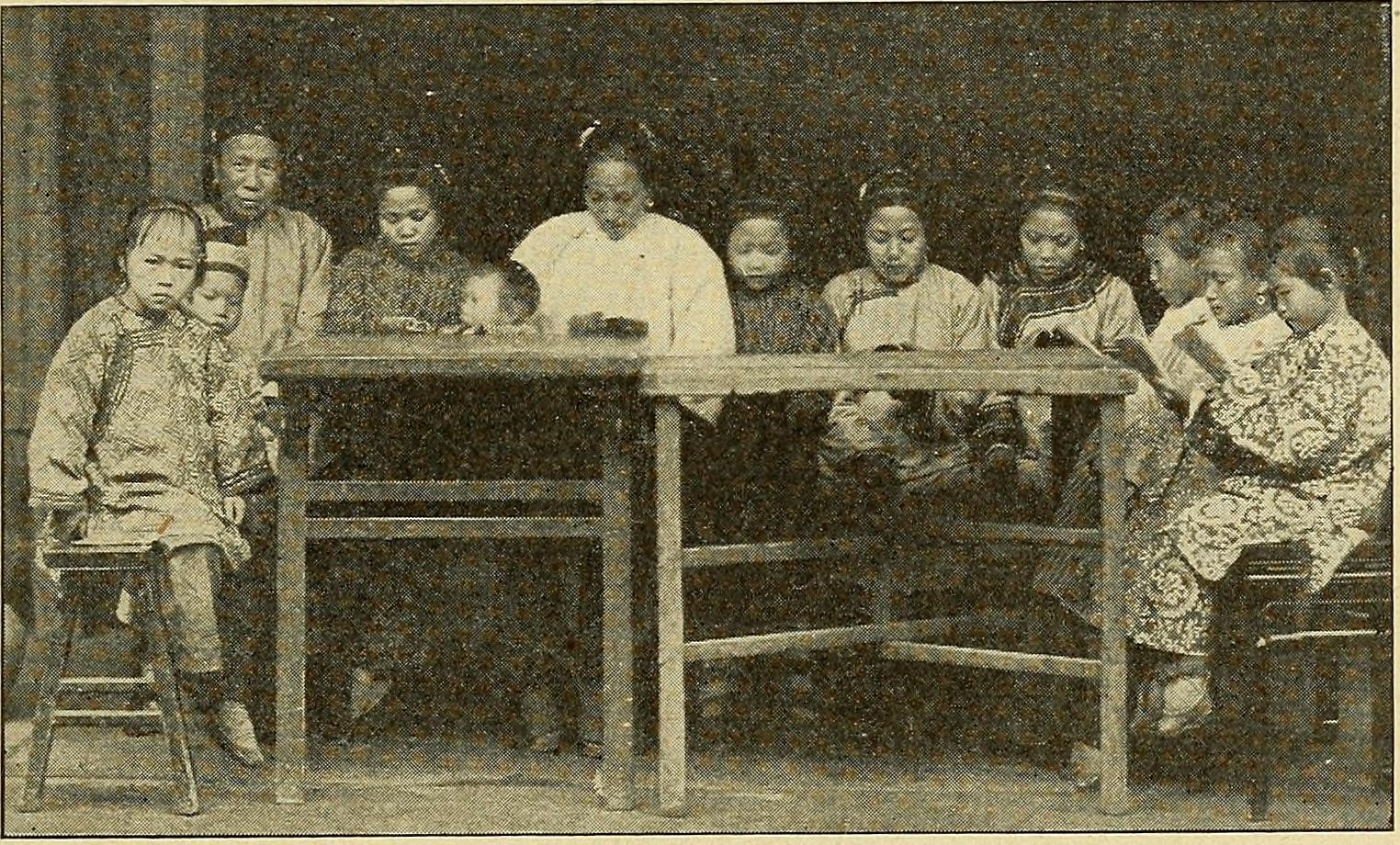
Fuzhou women and children studying the Bible, 1873. Source: Wikimedia Commons
Over a century ago, my great-grandparents were peasants in China. They were of Fuzhou descent, and they lived in Fujian, a coastal province on China’s south-east.
- At the time, China was a fractured nation. The land was being fought over by warlords, communists, and nationalists. Starvation, disease, and murder were rampant.
- Western observers could only shake their heads as they watched the chaos unfold. They called China ‘the sick man of Asia.’ It was a fitting name for a seemingly hopeless country.
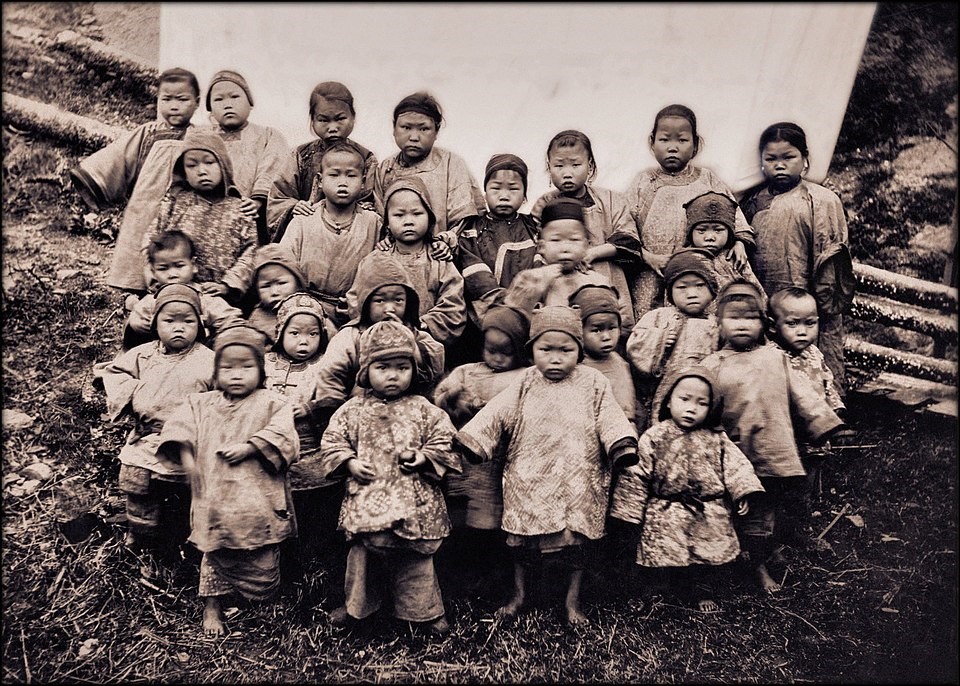
Fuzhou children rescued from slavery, 1904. A child sold into slavery
was often regarded as better than a child starving to death. Source: Wikimedia Commons
For my great-grandparents, the rising violence and nosediving economy gave them much to worry about.
- How bad was the civil war going to get?
- Could they afford to put food on the table?
- Who would be the next poor soul in the village to die?
- These were all terrible questions to contemplate.
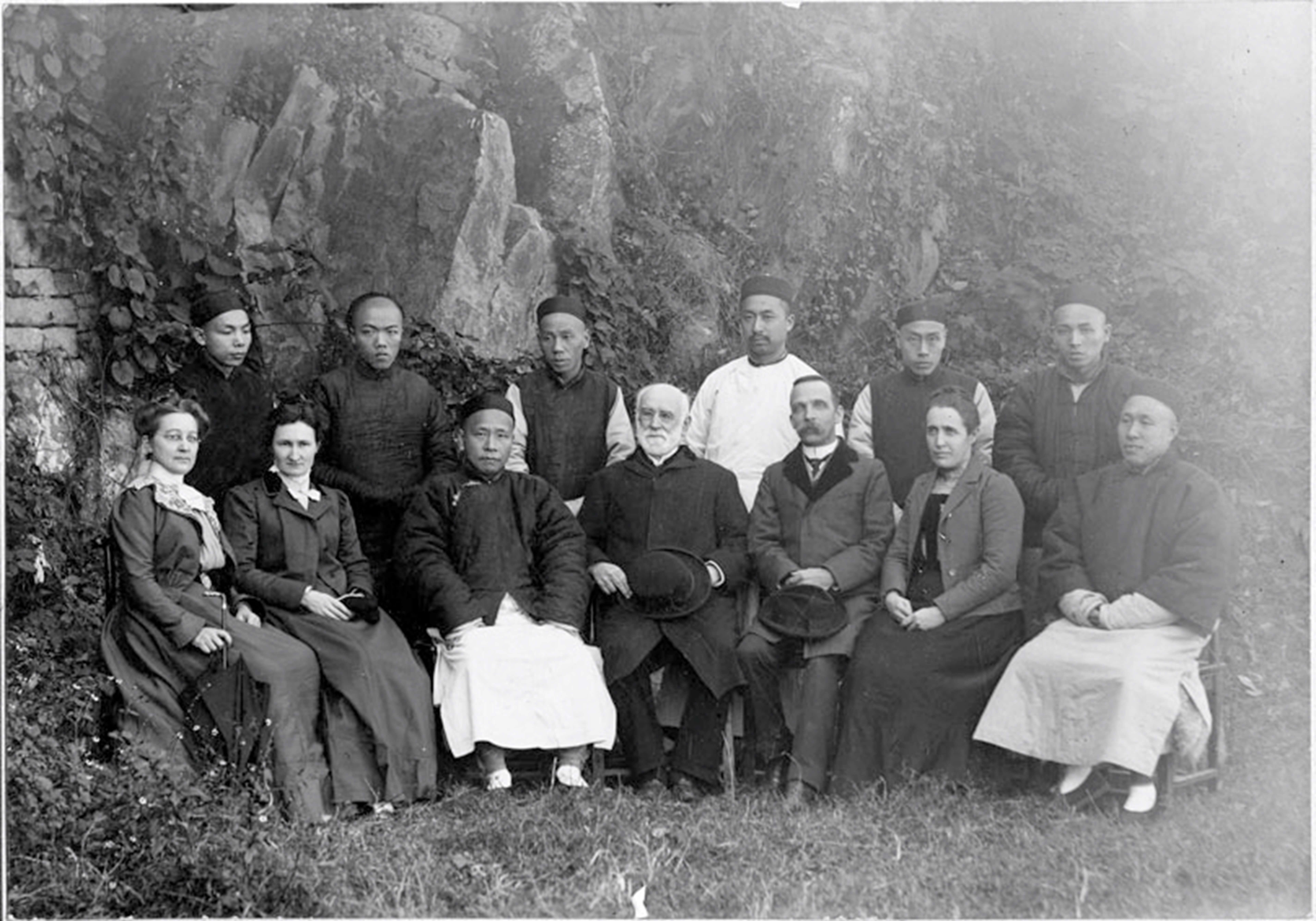
Reverend Charles Hartwell, an American missionary, posing with teaching staff
at Foochow College in Fujian, 1903. Source: Wikimedia Commons
Fortunately for my great-grandparents, there was a way out.
- Western traders had long used Fujian as a base to spread Christianity and secure business opportunities.
- The Americans and the British were ardent recruiters. They encouraged the local Chinese to emigrate to Southeast Asia to work in rubber plantations and tin mines.
- Their message could be summed up like this: ‘A better life for you. A better life for your children.’
Nervous but hopeful, my great-grandparents took heed of this message.
- They believed there was a ‘Southern Canaan’ waiting for them across the distant horizon. A promised land.
- Indeed, such religious imagery was a powerful motivator for my great-grandparents. They were oppressed. They were desperate. They felt like they had nothing to lose.
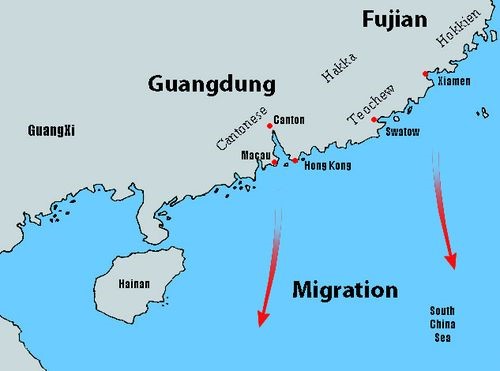
The pathway of Chinese migration throughout the 19th and 20th centuries. Source: Wikimedia Commons
So, my great-grandparents boarded rickety boats that were packed with a heaving mass of humanity, and they departed their homeland forever.
- Their voyage through the South China Sea was perilous. They were exposed to the elements, the wooden hulls of their vessels creaking and groaning from every incoming wave.
- The journey itself took an entire month. Food was scarce, leaving them malnourished. Worst of all, they also risked being intercepted on the open sea by pirates, who were just waiting to pillage and murder and rape.
- What a harrowing journey that must have been. How vulnerable they must have felt.
Fortunately, against the odds, my great-grandparents arrived safely on the rugged shores of British Malaya.
- They disembarked, staggering down the pier, the crushing flotsam of migrants streaming around them. There was no red-carpet welcome waiting. Just the harsh reality of being dirt-poor and trying to start a new life amidst the humid climate and tropical terrain.
- Still, my great-grandparents counted their blessings. The food in Malaya was reasonably abundant, and the British colonials were nowhere near as cruel as the Chinese warlords back in the old country.
- So, all things considered, Malaya felt like a land that was good enough for them to set down roots in.
So, what came next? Well, the next generation. My grandparents. They were born in Malaya. This made them subjects of the British Empire. This gave them a higher level of self-worth and self-respect.
- However, when I think about it, whatever good fortune my grandparents enjoyed was only marginal at best. Life for them was still rough and tough. They had to weather two great storms in their lives. The first was the Great Depression, the worst economic recession in history. Then the second was World War II, the most destructive conflict in history.
- You might argue that my grandparents didn’t have much of a childhood. What they endured was a double-whammy of trauma. But, still, they kept the faith. They persevered. They climbed the social ladder. They progressed into the working class.
- My grandparents belonged to what journalist Tom Brokaw called ‘The Greatest Generation’. A generation who never complained in the face of adversity. They simply pulled themselves up by their bootstraps. They soldiered on with courage.
- My grandfather had a legendary saying, which has since become part of our family’s folklore: ‘If hard work can kill you, then you should go ahead and die.’
- Harsh? Yes. But you have to understand: like many British colonial subjects during this era, my grandfather’s views on work were uncompromising. The idea of wokeness simply did not exist in his vocabulary.
- After all, my grandfather was raised by an immigrant family who had witnessed famine and death on a biblical scale back in China. This, coupled with his own personal experience of the Great Depression and World War II, shaped his way of seeing the world.
- Forget handouts. This was all about survival. No ifs. No buts.
So, what came after? Well, of course, my parents’ generation. They were the Baby Boomers. Perhaps the luckiest crop that my family had ever seen.
- My parents had the benefit of growing up in the postwar era. The world was rising from the rubble, experiencing a rejuvenation. The economy was modernising. Capital was starting to flow.
- This was the moment of moments. A turning point. All the pain and suffering that my grandparents and great-grandparents had endured in the first half of the 20th century suddenly became rocket fuel, giving my parents the ability to push ahead in the second half of the 20th century.
- This is how my parents successfully made the leap from working class to middle class. They were the right generation. In the right place. At the right time.
- I explore my parents’ story in much more detail in my latest Quantum Wealth Report. You might find this to be an intriguing read, especially if you enjoy stories filled with nostalgia.
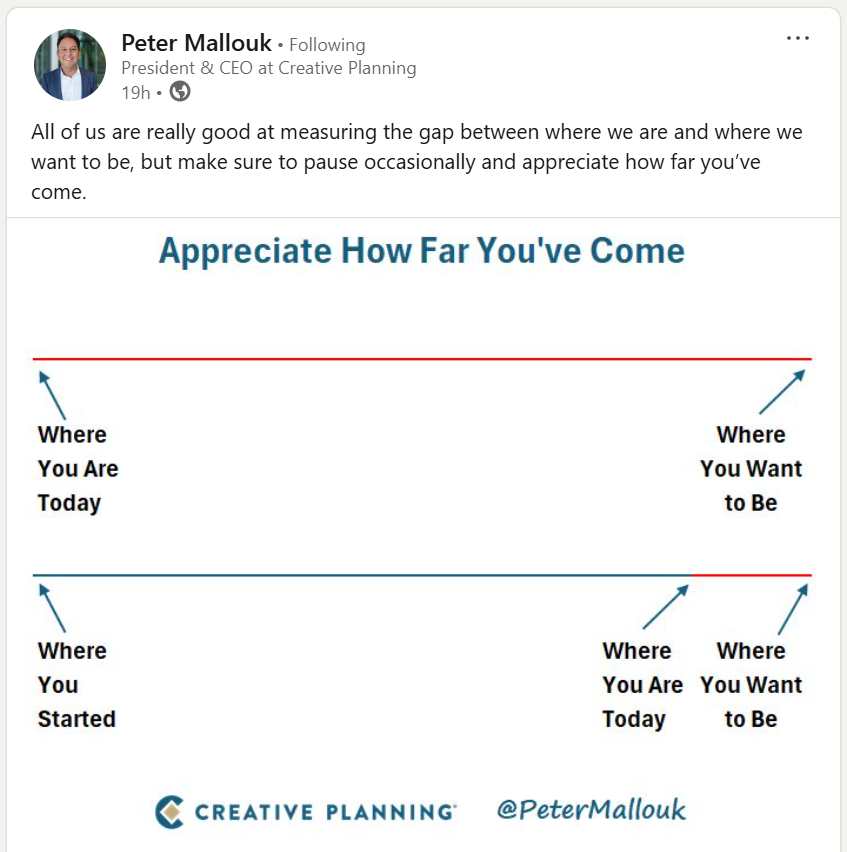
Source: Peter Mallouk / LinkedIn
Now, in hindsight, I think my family’s journey has been a fascinating one. We’ve gone from peasants to refugees. Then from refugees to working class. Then from working class to middle class. The social mobility here has been remarkable.
- Today, I’m a fourth-generation Malaysian of Chinese Fuzhou descent. I also happen to be a first-generation New Zealander.
- I can’t help but marvel at the millions of steps that my family had to take to get me to this point. There were so many twists and turns along the way.
- I dare say that if only one thing had gone wrong, chances are, I wouldn’t be here right now, telling you about my story. This is sobering. This is humbling.
Of course, my family’s story is not unique. I’m willing to bet that it’s also the story of your own family. And perhaps it’s the story of all immigrant families.
- Somewhere, somehow, an ancestor took a chance in the name of hope. And from that point on, the ripple effect of that courageous decision changed the fortunes of all their descendants further down the line.
- This reinforces something that I’ve always believed. Yes, bad things will happen in the short-term. But watch out. Good things will happen in the long-term.
- So, if you ever find yourself discouraged by the challenges of today, you should try zooming out. Try thinking in terms of decades. Try thinking in terms of generations. After all, that’s the real miracle, isn’t it? People will always inch forward — painfully, stubbornly, relentlessly — until misery gives way to prosperity.
- Luck isn’t just about rolling the dice. It’s about what we do with each roll. How we adapt. How we endure. And how we pass that resilience forward. Indeed, that’s the gift that keeps on giving. It’s one well worth reflecting upon.
[ INVITATION ]
Our Next Upcoming Live Event: Coffee & Capital
Come join us for our next friendly Coffee & Capital event.
It’s a chance to meet other investors, learn more about how we’re navigating this current market, and bring your questions or comments.
At this critical time, we’ll be unpacking key issues for our readers and investors. We’ll be talking about what is impacting the market right now…
- Trump 2.0. Is the second coming of the orange man (and tariffs) good or bad for investors? What opportunities are we seeing at the trading desk?
- Property deluge. Investing in NZ used to be all about residential property. But with falling property values and reports of a rental crunch, is this old chestnut out of steam? We look at the future for property and some alternatives as falling interest rates shine a light.
- World order disruption! Global markets are excited at the prospect of an AI earnings boom, but are disturbed by intensifying geopolitical tension and conflict. How do you navigate risk and opportunity in these strange days?
COFFEE & CAPITAL
Friday, 18 July, 2025
11:00am to 12:00pm
❌ This Event Is Now Sold Out
Goodness Café (Backroom)
228 Jervois Road, Herne Bay, Auckland
$37 per person / limited spaces
Includes any menu item, coffee
[ Special Member Price ]
For Managed Account clients & Quantum Wealth subscribers
❌ This Event Is Now Sold Out
$27 per person / limited spaces
Includes any menu item, coffee
Come join us!
Our last event sold out quickly.
Please reserve your seat today.
Regards,
John Ling
Analyst, Wealth Morning
(Important note: These events provide news, commentary, and general information only on financial and economic trends. They represent the speakers’ personal opinion only. They should not be construed as any financial or investment advice. To obtain financial advice for your specific situation, please consult an authorised Financial Advice Provider.)






John is the Chief Investment Officer at Wealth Morning. His responsibilities include trading, client service, and compliance. He is an experienced investor and portfolio manager, trading both on his own account and assisting with high net-worth clients. In addition to contributing financial and geopolitical articles to this site, John is a bestselling author in his own right. His international thrillers have appeared on the USA Today and Amazon bestseller lists.